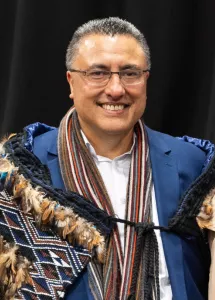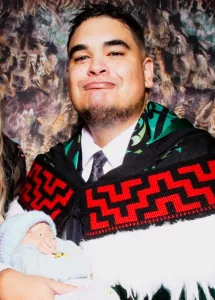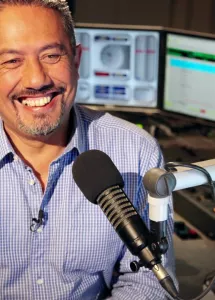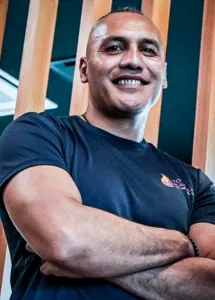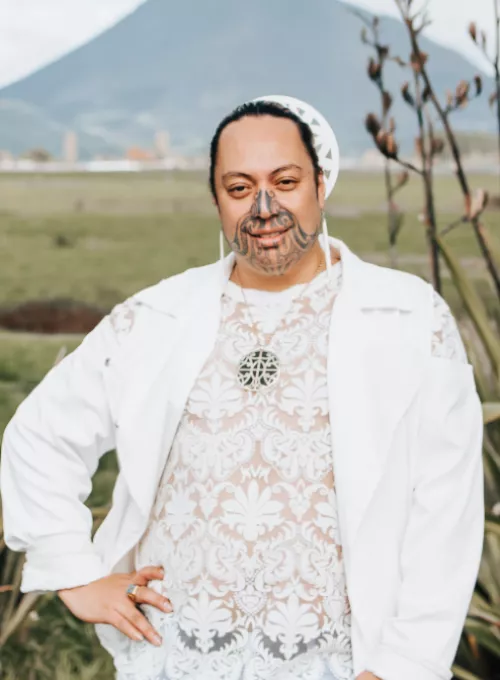
Patrick Salmon passionately advocates Māori well-being, innovation, and cultural expression in modern society. With a deep commitment to empowering whānau and communities, Patrick blends creative skills, traditional knowledge, and innovative thinking to develop solutions that support the oranga aspirations of Māori.
Patrick holds a Master’s degree in Applied Indigenous Knowledge and a Certificate in Māori Performing Arts from Te Wānanga o Aotearoa, as well as a Bachelor of Business Administration from the University of Waikato. His professional background includes extensive experience in governance for tribal and mainstream entities, alongside work with community groups focused on Māori well-being.
Patrick is currently the Relationship Manager for Mataatua (Bay of Plenty) at ACC, having transitioned from his role as Capability Advisor Māori at Plunket Whānau Āwhina. He also serves on the Executive Council Board for the Public Health Association New Zealand (PHANZ).
Patrick is the Founder and Managing Director of Kairua, an online movement dedicated to creating positive change within communities in Aotearoa and globally. Through Indigenous Innovation, Patrick has built an online community of over 100,000 innovators and creators who engage daily across multiple social media platforms. His work fosters public discussions on tā moko, gender, and the preservation and evolution of Māori cultural practices.
While at Te Wānanga o Aotearoa, Patrick pioneered projects that combined ancestral knowledge with modern technology. One notable initiative involved enabling traditional wooden heru combs to interact with smartphone apps, creating an augmented reality experience that shared traditional wisdom about the heru’s protective power. This work supported Māori wāhine in overcoming harmful habits, such as smoking during pregnancy, and connected participants with Te Ao Māori in meaningful ways.
Patrick actively supports and mentors local businesses as part of the Whakatāne Chamber of Commerce. He also runs localised wānanga in the Whakatāne area, sharing the teachings of the late tohunga, Hinewirangi Kohu-Morgan, to nurture cultural knowledge and spiritual growth.
Patrick recently attended the Commonwealth Heads of Government Meeting in Samoa (CHOGM), where he helped establish the first official Indigenous Business Commonwealth Collective. This initiative supports indigenous leadership on international platforms focused on economic and environmental development.
Patrick sees tā moko as a cultural alphabet that reflects personal journeys and histories. Through his work, he challenges traditional narratives while advocating for the growth of expression and maintaining cultural integrity. He continues to explore innovative ways to connect Māori to their heritage while creating pathways for future generations.
Patrick’s work is a testament to his commitment to advancing Māori well-being, fostering innovation, and empowering communities to thrive. His leadership exemplifies the balance of cultural preservation and forward-thinking solutions, ensuring that Māori voices remain strong in shaping the future.
Links:
Te Oro Tapu Profile: Patrick Salmon
Te Ao Māori News Article: The moko evolution of Patrick Salmon 28 December 2017
Waatea News Audio: Paakiwaha interview | Patrick Salmon-Kairua Digital Creator, 22 November 2021
Updated 31 December 2024
